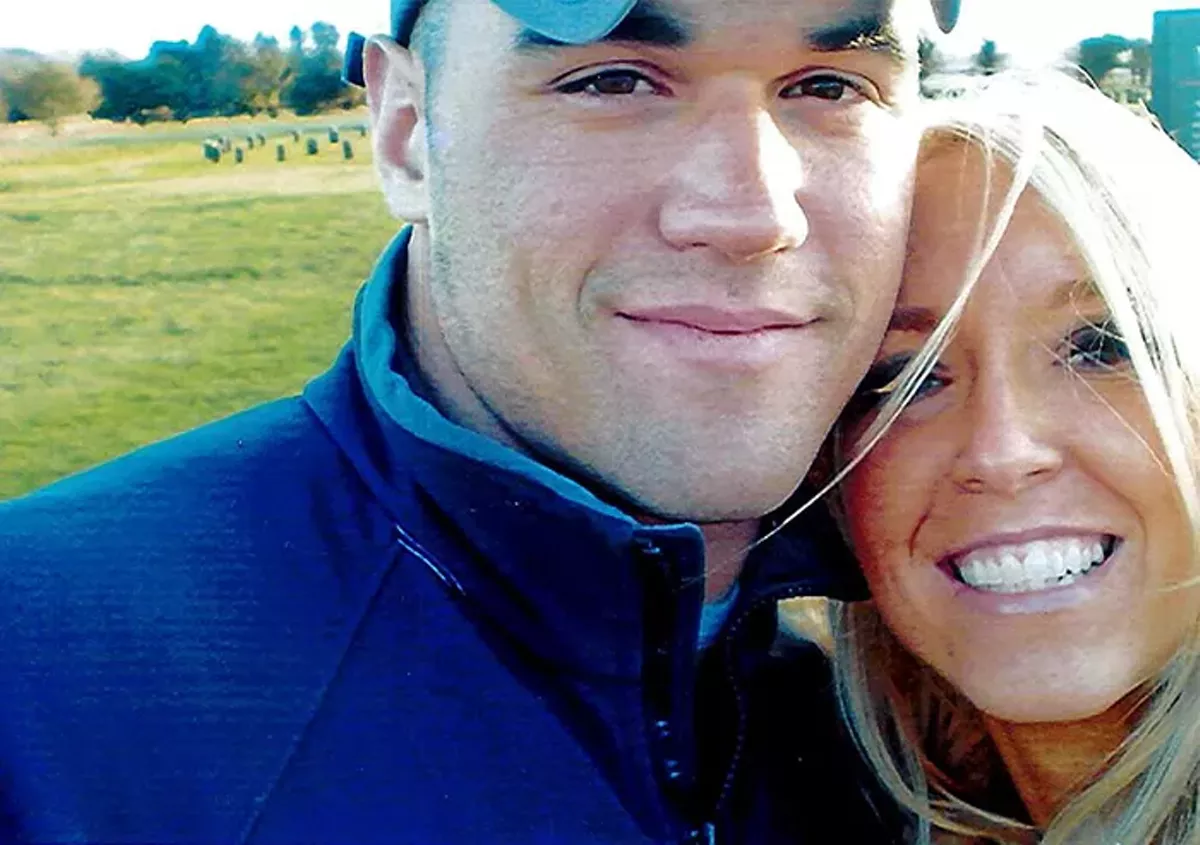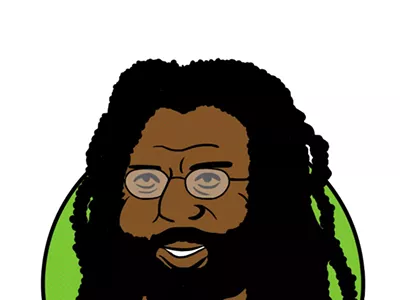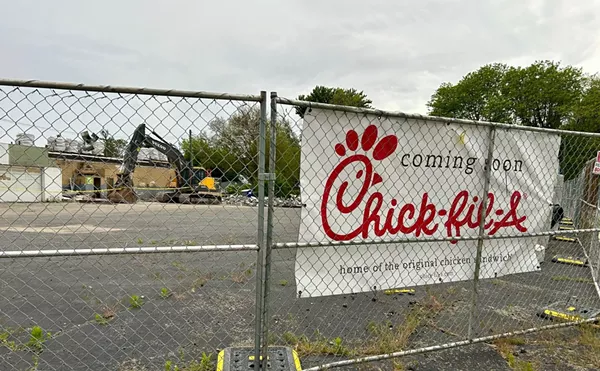Justin Pope was shot and killed in Iraq in 2009 — his family is still trying to figure out who pulled the trigger
Far from home


Audio By Carbonatix
[
{
"name": "GPT - Leaderboard - Inline - Content",
"component": "35519556",
"insertPoint": "5th",
"startingPoint": "3",
"requiredCountToDisplay": "3",
"maxInsertions": 100,
"adList": [
{
"adPreset": "LeaderboardInline"
}
]
}
]
Page 3 of 3
Kehoe's own remarks under oath, however, appears to contradict a written statement he gave to DynCorp on the incident about six weeks after Pope's death.
Initially, according to the statement, Kehoe — who wasn't present at the time of the incident — was asked to fly to Michigan on March 5 to meet Pope's family. He wrote he believed Pope died of a gunshot wound to the mouth, and that "the only information I had was that Justin had accidentally shot himself."
That, even though Kehoe wrote he was in frequent contact with top DynCorp management in Iraq to be kept apprised of any updates. (In addition, at this point, the State Department had already conducted several interviews with Palmer and other witnesses in the room.)
So he flew to Michigan and told the family that Pope was alone when he died. The family didn't buy it.
When pressed, Kehoe assured them it was "absolutely accurate and correct," his April 2009 statement says, "and those were the facts that I had at the moment."
(Sovitsky, who was the team leader that oversaw Palmer and Pope, says a conversation with Kehoe about his trip in the days after he returned to Iraq rubbed him the wrong way. "He talked a lot about how attractive, how hot, Mrs. Pope was," he said in a deposition. "And he'd like to bang her, and that — and then talking about how wasted he got while he was there.")
The story would dramatically change when Palmer arrived in the next couple of days.
In an interview with federal agents, Bill Salser recalled a conversation he had with Ashley, who said she spoke with Palmer a few days after Pope died.
"During this conversation [between Ashley and Palmer], Kyle stated that he was wrestling around with Justin, Kyle's finger was on the trigger, and Kyle shot Justin," the file says. "Kyle also told Ashley a third person was in the room at the time of the shooting."
DynCorp takes aim at Pope's family
DynCorp, of course, has through and through denied the family's accusations as "unequivocally false."
In court filings, attorneys representing the company lay out an argument that attempts to dispel any notion of a cover-up. It says the official story has been known to the family for years. And perhaps, the company says, not everything in Pope's family was as it seemed.
For example, Kehoe apparently came away from Michigan with a different impression of Pope's life. In his April 2009 written statement, he says: "I believe I am probably the only one who feels this way, but I feel [Pope] lived a reckless life, loved his son, but his relationships on the home front were rocky at best. I was not in the room that night, but it is my personal belief that although alcohol was a factor, Justin was reckless and it would have happened with or without alcohol."
The family's attorneys say those remarks are "another disturbing example" of victim blaming.
"It's a self-serving statement that was intended to redirect the focus of what really happened to blaming the victim and attacking the family," says Kalahar, the attorney.
Boffo highlighted an incident, included in the State Department report, alleging Pope was involved in a reckless accident near DynCorp's training facility in Virginia.
Pope, Flemming, and Palmer allegedly wrecked a car while drunk, left the vehicle, and attempted to cover up the situation before they walked back to the training site, according to Boffo. The incident was reported, and the trio was counseled and given additional daily duties, Boffo told the feds.
But Flemming's account shows Pope wasn't involved in the accident. It was only Flemming and Palmer.
"We went to Buffalo Wild Wings to get dinner, and on our way back, there was a deer," Palmer said in a deposition. "I swerved, hit some trees, wrecked my truck. I thought I was still in Virginia ... and in Virginia [in] a single-vehicle accident, if no one is hurt, you don't have to report it. So that's when we called Justin. He came and picked us up."
DynCorp also contends — despite the family's dismay of what attorneys described as "outrageous" and "insulting" observations — that Kehoe's remarks about Pope's life back home, the one filled with dysfunction and booze, weren't far off base.
"Beyond the fact that the statement of reference was not intended to be viewed by Plaintiffs, evidence has established that Mr. Kehoe's personal observations had merit," DynCorp's attorneys wrote, pointing to a Facebook conversation with Ashley Pope and Kyle Palmer's now ex-fiance, Natalie.
In the message, Ashley said the Salsers were "horrible people."
"Don't even know where to begin ... but they (Justin's parents) want Kyle to pay big-time," she wrote. "That's all I will say about that, and they're money hungry; it seems all they care about about. Like, [Patricia Salser's] a media whore ... and she told me that I wasn't anything to Justin and I can replace him and she can't ... she's crazy."
Ashley then told Natalie: "maybe you should delete this ... I'm not really supposed to talk to anyone about it all."
The Pope's lawyers say Ashley was a woman in "great pain" and all families occasionally have problems. Furthermore, William Goodman notes, "Why is that license for DynCorp to lie about how their loved one was killed? How is it relevant that tension between in-laws can allow this corporation to avoid being held accountable for how they hurt his family?"
Regardless, their attorneys say Ashley and her son have a close relationship with the Salsers now.
DynCorp remains steadfast that the family acrimony and their claims have all been refuted. Kehoe wasn't sent to lie to the family, for instance.
"Mr. Kehoe was sent to Michigan to facilitate the return of Justin's body to Michigan for the funeral," DynCorp attorneys wrote. Kehoe paid over $1,000 for the funeral out of his pocket, the brief says, and DynCorp fronted nearly $10,000 to cover the costs.
Responding to the claim that DynCorp's accounts varied wildly throughout the weeks that followed Pope's death, the company's attorneys say in filings that Kehoe was initially relaying "preliminary information" and that he told the family he wouldn't have definitive answers until after the State Department investigation was complete.
Those statements, however, appear to conflict with Kehoe's written remarks in April 2009 that he gave the family "absolutely correct and accurate" facts.
What about the allegation that Kehoe implied that Pope committed suicide? It's a lie, contends DynCorp.
"The facts of this case reveal that no one ever told the Plaintiffs that Justin Pope committed suicide," DynCorp attorneys wrote in a brief in February.
But the rumor on the DynCorp compound that Pope killed himself seemingly carried more weight than the company's attorneys let on. A report filed in March 2010 by an investigator hired by DynCorp's insurance company suggests an unequivocal determination had been made that Pope shot himself.
"At first," the report states, "[Pope's] death was ruled a suicide."
In addition, DynCorp filed a document on Pope's death with the U.S. Department of Labor that's known as the "Employer's First Report of Injury or Occupational Illness."
The document filed in January 2010 — nine months after Pope died — asks for the employer to describe how the incident occurred. Dyncorp wrote:
"Pope accidentally discharged his weapon causing a round to strike him in the head."
'It doesn't go away'
If you ask one of DynCorp's own executives, there's only one chance to make a "death notification" to next of kin. And it should be executed masterfully.
In a deposition given last year, Michael Warren, vice president of DynCorp's employee assistance program in the human resources department, said: "Some people don't really realize how difficult making a death notification is and what it entails, because you only get one chance to ... make the death notification, and it has to be dignified ... if you provide information where you're — you're not 100 percent — I mean, that's just like saying someone died and they're not dead.
"I speak from experience. When you're letting someone know that someone — that their loved one has died — you've got to take into consideration that you're changing that person's life."
So when it comes to Pope's family, Hurwitz points to what's called "ambiguous grief," meaning the unresolved feelings that are generated when a loved one's cause of death is unknown.
"Justin's family will now never know the real truth about how he was killed because they don't know what they can and cannot believe," the family's attorneys wrote in a court brief, adding an expert witness would testify in the case "that the family remains trapped in the endless hell of not knowing, and many of them cannot even begin a normal grieving process because of it."
The family stews when asked to describe the feeling of being unable to cope with the loss of Pope.
"It affects everyone a little differently," says Justin's brother, Kevin. "Myself, I know a lot of people didn't sleep, but I'll go to bed every night and in my mind, I try to turn this off. Years went by and it affected my family life; it affected the way my daughters see me. I didn't sleep barely at all because I dreamed things about my brother being held down, held down by people and tortured. You just don't know. And it doesn't go away."
A spiritual anecdote relayed by Ashley Pope perhaps best illustrates the family's emotions.
When their son Gabriel was 8 years old, Ashley took him to visit his father's grave. There, she asked him, "Gabriel, are you mad at Jesus?"
"No, I'm not," Gabriel told his mom. "Jesus didn't kill my dad. Satan did."
The family's case is set to begin Nov. 30.
Ryan Felton is an investigative reporter for the Detroit Metro Times.






